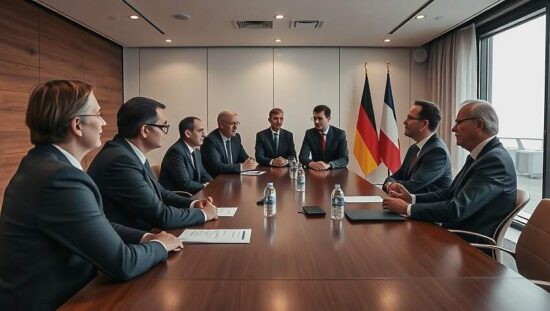Germany and France have reached an agreement on a joint economic agenda, revealed during a ministerial council meeting in Toulon on Friday. The overarching objective is to bolster European competitiveness.
Key discussions centered on supporting industry through affordable energy prices. Ministers agreed to prioritize measures ensuring carbon-intensive industries are not disadvantaged by the Carbon Border Adjustment Mechanism when exporting goods. Simultaneously, efforts will be made to stabilize prices within the EU Emissions Trading System, acknowledging that increasing the volume of certificates to lower prices could lead to increased greenhouse gas emissions overall. Collaborative exploration of potential incentives for sustainable products, including labels and sustainability criteria, is also planned.
A summit dedicated to digital sovereignty, scheduled for November 18th, will focus on stimulating investment in crucial technologies. Artificial intelligence, quantum computing and space technology are identified as particularly important for strengthening Europe’s digital independence. Cooperation is intended to advance digital infrastructure and cloud computing capabilities, aiming to mitigate associated risks, as well as reinforce the European battery industry.
In the energy sector, the two nations will closely coordinate regarding the potential construction of a new electricity interconnector. The swift implementation of the Southwestern Hydrogen Corridor is also a priority. Furthermore, a unified stance is sought on the EU regulation concerning the carbon footprint of batteries.
Efforts to deepen the European single market include the proposal for a new European-wide corporate structure. Germany and France intend to urge the EU Commission to simplify EU legislation, with a specific focus on easing the burden on companies employing between 250 and 1,000 workers.





